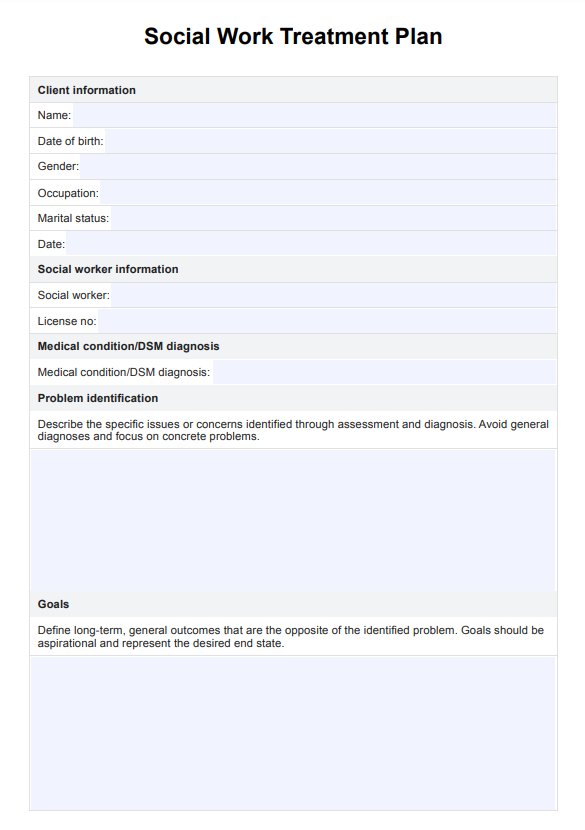A comprehensive Social Work Treatment Plan should include the client’s presenting concerns, goals and objectives, interventions, a timeline for achieving these goals, and criteria for evaluating progress. It should also outline any necessary resources, coping skills, or support systems to assist the client.

Social Work Treatment Plans
Learn about social work treatment plans and download a free, printable PDF template. See an example plan with answers and responses.
Social Work Treatment Plans Template
Commonly asked questions
A treatment plan should be reviewed regularly, typically every 30 to 90 days, or as the client progresses or faces new challenges. Regular reviews help ensure that the treatment remains relevant and effective, allowing for timely adjustments to goals and interventions.
A free template can save time and provide a consistent, comprehensive framework for creating individualized treatment plans. It ensures that all essential elements are included, offers a clear structure for treatment, and simplifies the process of reviewing and updating the plan.
EHR and practice management software
Get started for free
*No credit card required
Free
$0/usd
Unlimited clients
Telehealth
1GB of storage
Client portal text
Automated billing and online payments











